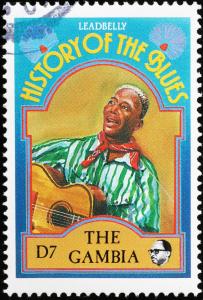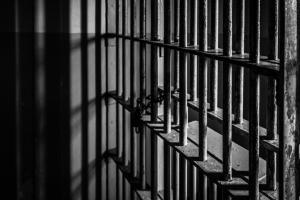
The Book of Daniel showcases the power of prophets to stand against the power of tyrants. The story’s villain, King Nebuchadnezzar, becomes enraged when Shadrach, Meschach, and Abednego will not bow down and worship a golden statue. He orders his henchmen to stoke up the furnace and throw the prophets in. The tyrant gloats, “what god will be able to rescue you from my power?”
When the three God-servants exit the furnace unharmed, Nebuchadnezzar understands that Empire-power cannot kill the power of moral clarity, steadfast commitment, and spiritual connectedness. Contemporary poet Tyehimba Jess references this story in a poem about the legendary Blues musician Huddie “Lead Belly” Ledbetter. Jess’s poem martha promise receives leadbelly, 1935 imagines Ledbetter’s return home after serving time in prison. Jess pictures the aftermath of incarceration in terms of the biblical moment when Shadrach emerges from the fiery furnace.

Metaphorically speaking, Huddie Ledbetter certainly survived a furnace. Born in 1888 on a Louisiana plantation, Ledbetter grew up in the Jim Crow south. He drank, fought, and defended himself as fiercely as he played the 12-string guitar and sang. He served time in prison more than once. He worked on a chain gang, suffered through solitary, and survived a knife-fight in prison that almost took his life. Jess’s poem imagines the post-prison reunion between Ledbetter and his wife Martha Promise Ledbetter.
Narrated from Martha’s perspective, the poem starts “when your man comes home from prison,/when he comes back like the wound/and you are the stitch,/when he comes back with pennies in his pocket/and prayer fresh on his lips,/you got to wash him down first.”
The poem goes on to picture Martha Promise Ledbetter bathing her husband’s face to revive him after the ordeal of incarceration. As the poem ends, its speaker says “you got to hold tight that shadrach’s face/between your palms, take crease and lid/and lip and brow and rinse slow with river water,/and when he opens his eyes/you tell him calm and sure/how a woman birthed him/back whole again.”
Black life in America remains a fiery furnace, so it’s no wonder a poet like Tyehimba Jess would turn to the story of Shadrach to envision rebirth after the fiery ordeal of incarceration. Black men make up only 13% of the population but they make up 35% of the prison population https://www.vera.org/ ).
To anyone who thinks “well maybe that’s because they commit more crime,” I’d suggest some additional reading: https://www.brennancenter.org/our-work/analysis-opinion/race-mass-incarceration-and-disastrous-war-drugs or https://www.prisonpolicy.org/ would be good places to start.

Many Black writers turn biblical materials into powerful poetry despite the history of white Christians using the Bible to fuel racist hate and violence.
Poets like James Weldon Johnson, Paul Lawrence Dunbar, June Jordan, Lucille Clifton, Jericho Brown, and Tyehimba Jess use biblical stories in poems that celebrate Blackness, explore Black survival power, and heal Black pain. Jess’s collection of poems about Lead Belly laments Black pain while celebrating Black resilience.
A good deal of poetry by Black writers breathes new life into Jewish and Christian Scriptures. As a white Christian, I’m honored to learn from these poets how to see the healing potential of these ancient texts. Jess’s use of the Shadrach figure suggests that moral clarity and commitment to justice are one of the keys to Black survival power. Black communities, including Black poets and the Black church, model the practice of standing firm, like Shadrach in the story, against tyranny and systemic oppression.













